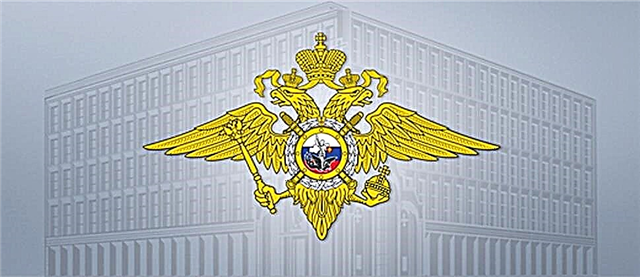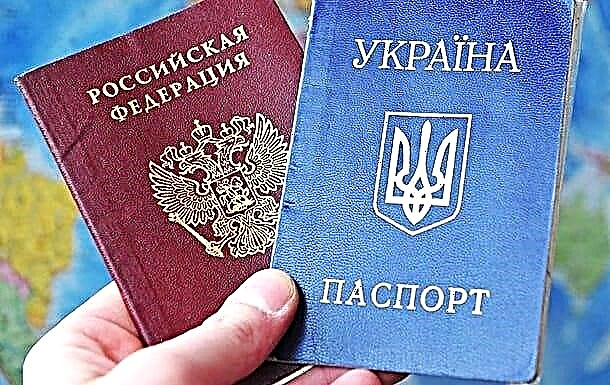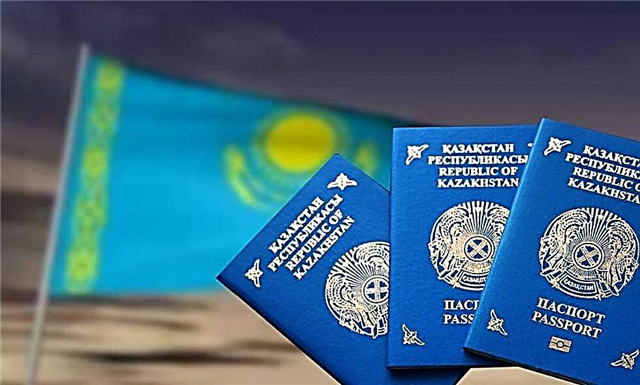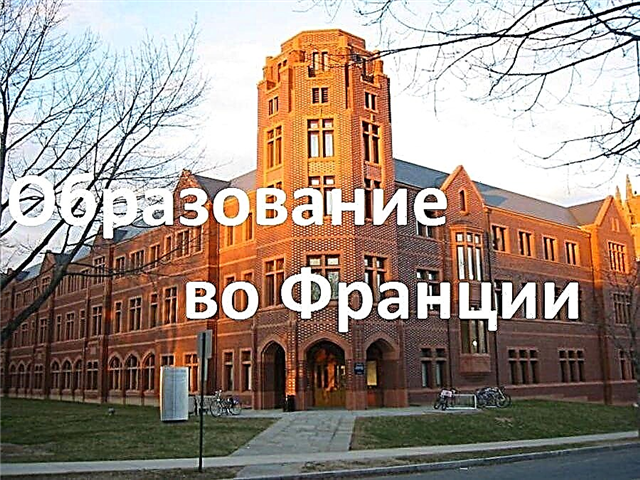France's higher education institutions are among the best known in Europe. The history of many of them dates back to the 11th century. For centuries, these oldest universities were considered privileged, and only representatives of the upper class could study there.
Education in France
In our time, the French Ministry of Education is pursuing a different policy, making education at any of the universities publicly available. Education in France is as democratic as possible not only for fellow citizens, but also for foreigners.

If we focus solely on the QS rating, then the situation does not look promising. Only 11 higher education institutions in France are ranked among the 250 best in the world. However, it should be remembered that the rating takes into account not only the quality of education, but also the number of graduates. Although even the best French universities do not have a noticeable social or property qualification, they remain elite - precisely because of the small enrollment rate.
For example, the prestige of the Higher Normal School in Paris is so great that its graduates have almost one hundred percent guarantees of employment in any research center in the world. But the institution is not included in the world's top twenty only because it accepts no more than 200-300 students per year.
Not only engineering is appreciated, but also humanitarian and musical education received in France. Graduates of French educational institutions, including foreigners, are successfully employed in this country, which, if necessary, facilitates the relocation procedure.
Higher education
The age from which you can get secondary education is 18 years. To assess progress, there are semester and final exams, held in May and November. The grading system is point, includes points from 0 to 20. For successful completion of the master's and doctoral studies, it is required to write the corresponding scientific degree of work.
A short educational course lasting 2-3 years prepares specialists in the service and production sectors for employment within France. The long-term course provides for the receipt of internationally recognized bachelor's degrees (3 years of study) and master's degrees (5 years).
Education programs
In France, as in many European countries, specialization begins from preschool age. The child is brought up and trained in accordance with his natural inclinations and talents. Both school and higher education are built on the same principle.
The system of the latter is represented by three different types of establishments.
You May Also Like
- State-funded classical universities do not require entrance examinations, unless it is about admission to a specialized university that is a branch of the university. Levels of study: bachelor's, master's degrees of the first and second years of study, doctoral studies;
- Higher schools are both public and private institutions that provide higher specialized education in specific fields - management, pedagogy, IT, etc. Preparation for training begins with specialized secondary education. It is in the Higher Schools that most of the future ministers begin their careers. Such training is valued higher than general university education;
- Specialized schools teach the most narrow-profile specialties, mainly in the subjects corresponding to the specialization. The recruitment in them is extremely limited and is carried out on the basis of exam results.
Conditions for admission
A Russian, including a schoolchild who has finished 9-11 grades, can enter a French university without exams. The only thing that is required of him is knowledge of French or English.

You must successfully pass language tests:
- TCF or DELF / DALF for teaching in French;
- TOEFL or IELTS - for English-language programs.
For admission to a higher or specialized school, exams are required. Russian students at the initial stage of study will not be accepted there: it makes sense to enroll only starting from the fourth year of a domestic university.
Required documents
There is no single standard for submitting documents to be submitted in France, each university has its own requirements, which are best known in advance when contacting the administration.
Typically required:
- CV;
- Notarized translation of education documents into French;
- Motivation and recommendation letters;
- Certified document confirming the level of proficiency in French or English;
- Copy of foreign passport and student visa;
- A copy and a notarized translation of the certificate of the place of work, if the future student is already employed.
- The application period is approximately from January to April.
Cost of education
The state fully or partially subsidizes all higher education institutions in France. The course of university education in French in this country is free - only registration fees are paid, which are the same for any of the universities.

You May Also Like
Price indicators:
- The tuition fee for undergraduate studies at the university is 188 euros, on master's degree - 259 euros;
- Teaching in English will cost a student much more - up to 6 thousand euros per semester;
- In a public higher school, a year of study costs from 500 to 1000, in private - up to 20 thousand euros;
- The cost of education in a specialized school - from 250 to 13000 annually.
In addition, in all universities, students pay an insurance premium - 200 euros per year.
The financial problems in obtaining education in France for Russians and citizens of other countries of the former USSR are not so much in paying for studies as in living.
If a foreigner is not able to prove that he can spend at least a few thousand euros annually on life, it is difficult for him to obtain a study visa. However, there are numerous scholarships and grants available to help solve this problem.
Is it possible to get education for free
Universities in France, unlike higher and specialized schools, teach free of charge - including foreign students. This does not mean that you will not have to pay at all. There are registration and insurance fees, payment for food, accommodation and library services - the list can be continued depending on the specifics of training.
Still, studying in the best French universities is much cheaper than in private provincial universities in the Russian Federation, not to mention higher-level Russian educational institutions.
Government grants and scholarships
Social Security is a one-off compensation for social expenses that is awarded each year by the French government to several graduate students. Thanks to this grant, the future master is exempted from visa fees and education fees, and also receives significant benefits when paying for student housing. However, the number of fellows is small - about three dozen.

List of scholarships:
- Learning coverage Is a government scholarship with a monthly payment of 767 euros, as well as a free study visa and reduced living. Unfortunately, it is limited to nine months;
- Eiffel scholarship for future masters and doctors are awarded only to those of them whose training has achieved outstanding results. The number of annual fellows is 400, the amount of the monthly payment is 1400 euros, the duration is from two (master's) to three (doctoral) years;
- Poincaré Scholarship provided not only for French-speaking, but also for English-language programs. Education in other foreign languages, including Russian, is not included in the Poincaré scholarship;
- Scholarship of the French Embassy in Russia provides for teaching French to 18 best students from the Russian Federation. The duration of a language course at a French university is three weeks. The scholarship covers flight costs, insurance premiums and living in a host family, as well as personal expenses in the amount of 200 euros;
- Specific Russian-French program - a scholarship from Vernadsky. It is awarded to graduate students who write dissertations simultaneously under Russian and French scientific supervision. This scholarship provides the opportunity to visit the French leader four times during the writing of the dissertation. Provides a scholarship for a year and four months in the amount of 767 euros per month.
- Empire scholarshipawarded by the Lyon Higher Normal School is designed to invite 20 students from abroad to complete their Master's degrees during the year. There is a monthly payment of 1,000 euros for each scholarship holder. The level of required knowledge of French or English - starting from C1.
Grants from educational institutions are awarded by French universities and high schools.
The grants awarded by the École Normale du Graduate School of Paris provide for up to 25 scholarships through the Sélection Internationale program. Each of them is designed for 1000 euros monthly for two to three years of study. It is possible to apply for a grant from the third university course.
In order to study in scientific specialties, you must be fluent in both French and English. For the humanities, only French is enough.
The scholarships awarded by the French Collegiate College are similar in size, benefits and duration to government tuition coverage. For most Russians, they are not available. In the Russian Federation, they are distributed among themselves by Moscow and St. Petersburg among the humanitarian and law faculties of universities.

Features of internship and exchange programs
There are many good internship and student exchange programs out there. The most popular ones are:
- Internship in Paris;
- Work & travel in France;
- Au-Pair in France.
Most often, such programs operate for students studying at the faculties of a foreign language, as well as hospitality and tourism management. Here there is an opportunity not only to learn something, but also to make money: as a rule, in the service sector. The value of the minimum wage according to state standards of France - 540 euros within a month.
Accommodation and meals for students
Anyone who wants to get a job for a period of study in France has two options: go to the private sector or get a job on a student campus (dormitory) at a higher educational institution. Private traders offer a wide variety of not only apartments, but also prices - it all depends on the living conditions.
The number of places on campuses is usually limited, so it is best to apply as early as possible. The government partially reimburses student housing costs (in the amount of 20 to 40%). An overnight stay on campus will cost about 140-400 euros per month, meals - in 130-200.

Top universities in the country
- Ecole Normale Superieure Paris (Higher Normal School in Paris) is one of the oldest educational institutions in the country, founded in 1794. It trained such celebrities as Louis Pasteur, Jean-Paul Sartre, Emile Durkheim. And today, graduates of the Higher Normal School are valued as specialists in the field of exact, natural and humanitarian sciences not only in France, but throughout the world;
- University of Pierre and Marie Curie (University of Pierre and Marie Curie) is the largest scientific and medical complex in France. Includes over a hundred laboratories associated with the CNRS. Known for excellence in teaching science, science and medicine;
- The University of Paris-Sud specializes in the teaching of exact and technical sciences. It includes 111 laboratory complexes, 2200 world famous professors are involved in teaching;
- The University of Strasbourg (Strasbourg University) is part of the international Utrecht network of leading European universities in Europe. 18 of its graduates have been awarded the Nobel Prize in various nominations.
Reviews about studies
Irina: I am studying law under the Collège des Ingénieurs program. The undoubted advantage of this grant is the guaranteed provision of housing. Finding accommodation during the period of study is a big problem for students in France, especially foreign ones. I am very lucky that the students of this program do not have such difficulties.
Alexei: I am studying in France on a Poincaré scholarship. Before I found out about this program, it seemed to me that there were no opportunities for me to study in France, since I do not know French. The English-language course in which I am studying came in handy.
Yuri:I recently received a grant from the EDHEC Business School. Now I work for a serious Spanish company in a prestigious position. I owe much of my success to studying in France.
In short, although higher education in France is not considered prestigious according to English-speaking ratings, in the field of practical application of the knowledge gained, it clearly outstrips the "noble nests" like Oxford or Eton, and at the same time is the most accessible.











